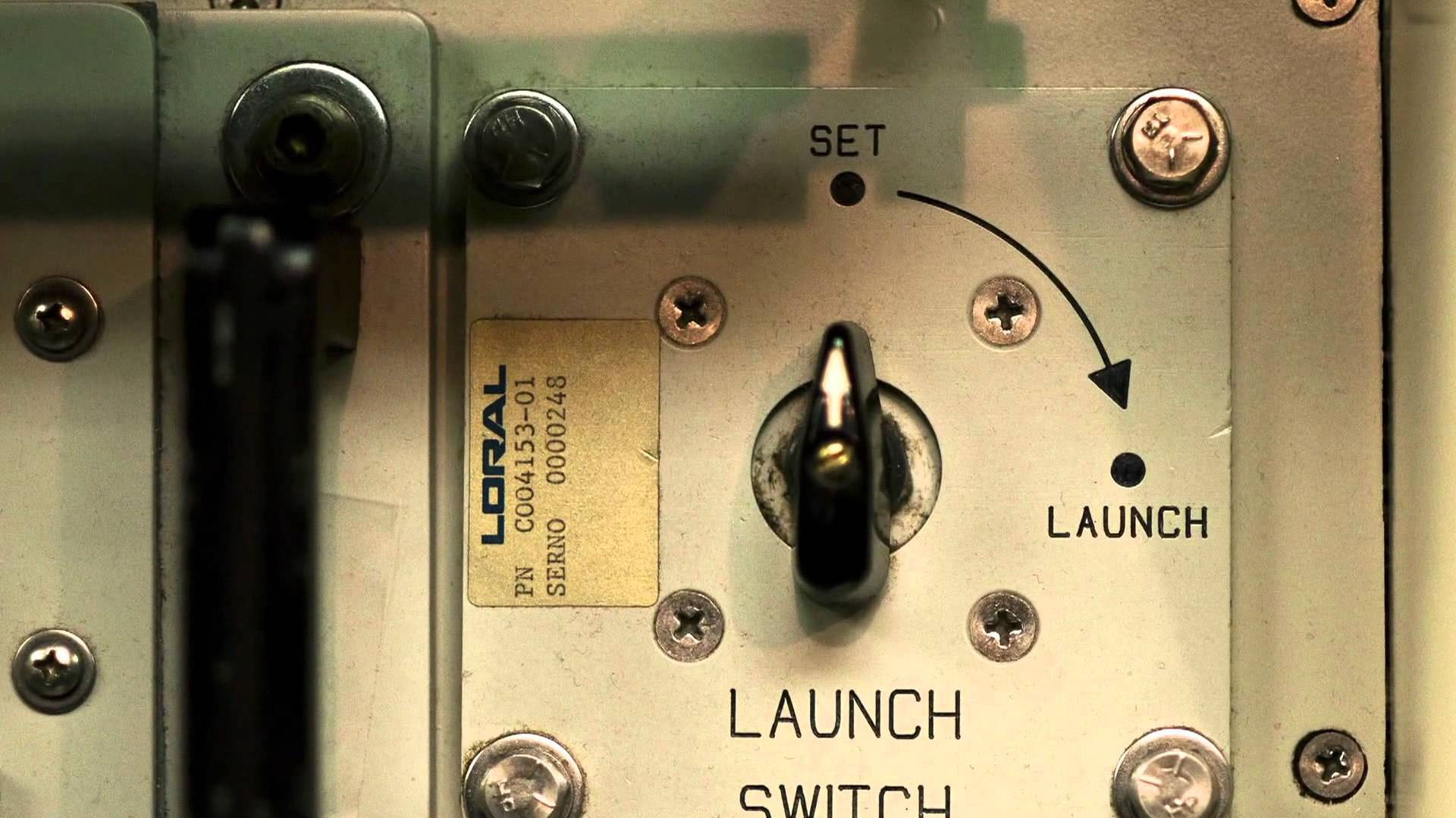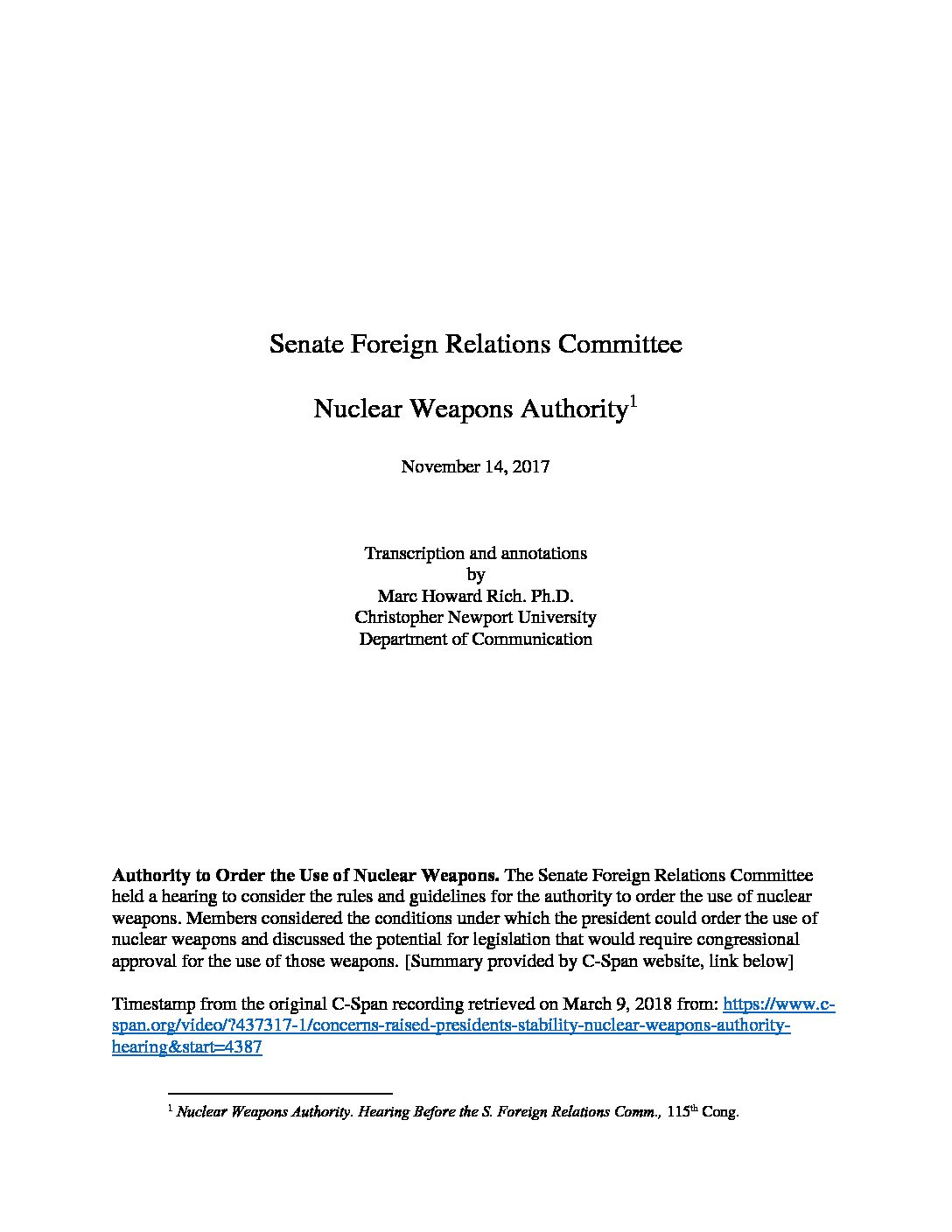Date
November 14, 2017
Document
- View PDF (483 KB)
Description
This is an annotated transcript of the November 2017 hearings before the Senate Foreign Relations Committee held to give a full accounting of “the rules and guidelines for the authority to order the use of nuclear weapons.”
The Committee, chaired by Bob Corker (R-TN), spoke with three witnesses: Gen. Robert Kehler (USAF, Ret.), Brian McKeon, J.D. (former Principal Deputy Undersecretary of the Department of Defense), and Peter Feaver, Ph.D. (Duke University).
The transcript was prepared by Marc Howard Rich, Ph.D, of the Department of Communication at Christopher Newport University. Dr. Rich prepared this annotated transcription from the C-SPAN recording of the hearing. An official transcription has not yet been released as of this posting.
Commentary
Citation
Marc Howard Rich, “Annotated Transcription of Senate Foreign Relations Committee Hearing on Nuclear Weapons Authority (14 November 2017),” 9 May 2018.
Provenance
Courtesy of Dr. Marc Rich, sent via e-mail and posted here with permission.
Topics
Document entry started by Alex Wellerstein on May 13, 2018. Entry last updated by Mikael Kelly on October 13, 2018.


The Senate Foreign Relations Committee hearing was called due to increased fears that President Donald Trump possessed unchecked authority to use nuclear weapons. The hearing probed questions about both nuclear checks and balances and the obstacles to possible reform. Kehler in particular emphasized that the head of US Strategic Command would be required to accept that any proposed nuclear use was in compliance with the law of war. Feaver emphasized that changing the complex system could have unintended side-effects.